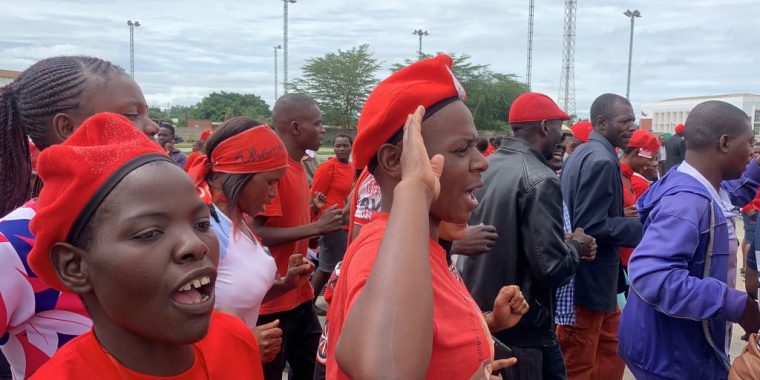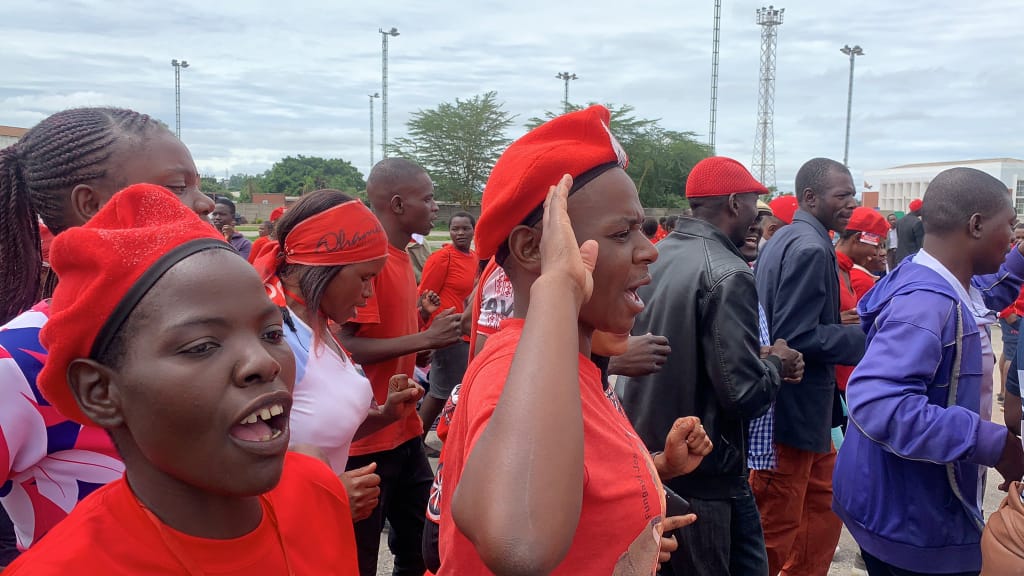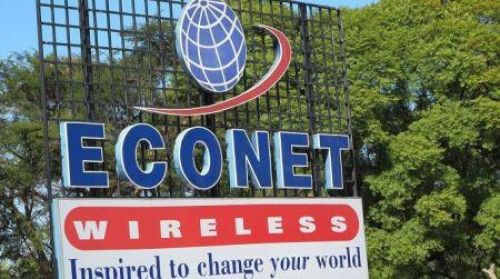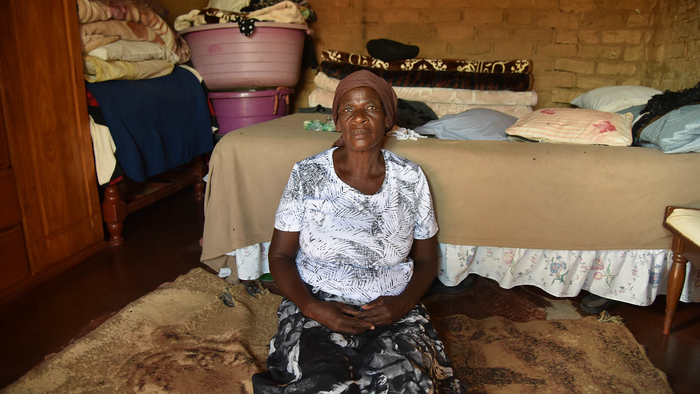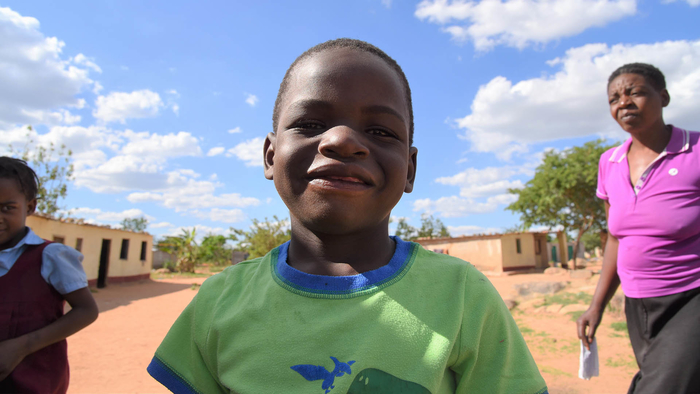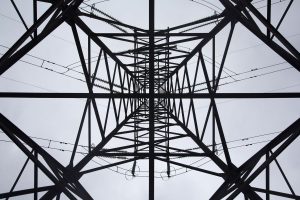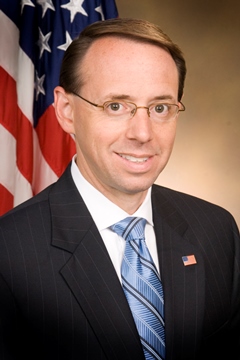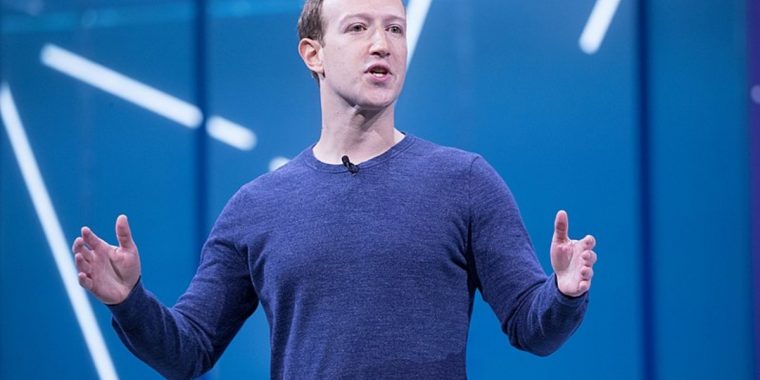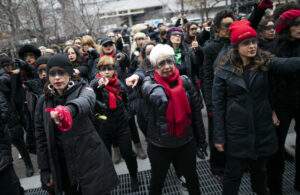Today we gather here at Stodart HALL in Mbare, this great place of history, a place of hope and inspiration which
has served as a revolutionary springboard for many of our country’s nationalist trailblazers, religious torchbearers
as well as sports and artistic luminaries among many other leading lights who have, over the years, scaled the
heights as the “Class of Stodart Hall”, in search of a Zimbabwe that the people want but which remains a pipe
dream TO BE PURSUED, BUT YET TO BE ATTAINED.
Because we are meeting in January and given that it is our first time to do so this year, let me take this opportunity
to extend to everyone compliments of the new year.
But as I do so, I’m alive to the fact that compliments of the new year have already been superseded by complications
of the last year, which have followed us into the new year; and which are standing in the way of any prospect for a
happy and prosperous year for Zimbabweans.
This year, 2020, is an important year not least because it marks the end of a decade and the start of a new one.
Over the last decade, and indeed over the last two decades, Zimbabweans have not been able to realistically wish
each other a happy and prosperous new year, with any credibility. The last decade, and the one before it, have seen
the destruction of happiness and prosperity in our country in ways that are unprecedented.
Throughout the last decade, Zimbabweans have moved from one year to another, on a wing and a prayer while
plunging from crisis to crisis and darkness to darkness, with oppression and the brutal denial of basic human
rights as the order of the day.
We declare 2020 a year of breakthrough in reclaiming the people’s victory and 2020-2030 a decade of hope rapid
radical transformation.
In March 1997 Zimbabwe launched Vision 2020. Vision 2020 promised:
• Housing for all by 2020,
• Healthcare for all by 2020,
• Education for all by 2020, and
• Jobs for all by 2020
Today we have none of all the promises THAT 2020 is upon us. As sure as the sunrise, time has come to test our
resolve and has found us wanting.
We have no healthcare, no housing, no universal education and no jobs. 23 years later we have a rapidly deteriorating healthcare system where doctors have to protest for medicines and equipment and where teachers cannot afford to send their own children to school.
We have a beautiful AND RICH country, with talented people and a wealth of natural resources. Ours is ONLY a failure of leadership.
The Zimbabwe of today is the product of and an expression of poor leadership. The crisis in Zimbabwe is man-made.
We are a broken and divided nation, led through fear, governed by force and ruled through violence.
Man-made poverty is being used as a tool of repression and oppression, while poverty has been weaponised to enrich a few. Food continues to be used as a political weapon to sow divisions, fuel hate and instill fear. This can’t be allowed to continue.
Right now, we are struggling with everything and anything education, school fees and teachers conditions of service,
doctors, water, electricity, transport and social service delivery in general
People have been impoverished beyond measure, no jobs, no income, no lights, no water, no fuel, prices are escalating while incomes are plunging. It’s just hell on earth, a beautiful country and hitherto relatively prosperous country turned into a hellhole by a failed, rogue and corrupt politics and policies.
THIS IS THE SIGNAL!
The old order has failed to bring forth the new. They have shown that they possess neither the appetite nor capacity to change. They’re vacuous. Their politics is vapid, insipid and out of time.
To place any hope on the past and on yesterday’s people is an act of cruelty and a betrayal of our children’s future.
• The old order is struggling on the governance and legitimacy fronts.
• The old order is struggling on the re-engagement front.
• The old order is struggling on the national convergence platform.
• The old older is struggling on the economic front.
• The old order is struggling on the policy FORMULATION AND IMPLEMENTATION fronts.
• The old order is struggling on the credibility and integrity fronts.
THIS IS THE SIGNAL!
So the ridiculous slogans about a new dispensation, open for business and second republic this and that have been
shown to be superficial rhetoric and delusions of clueless regime now muddling through on the basis of directionless
experimentalism hoping that somewhere along the way it will stumble on solutions to our problem. That’s not how
things work. We need serious and competent leadership with a clear vision and pathway forward through structured
reform, re-engagement and talks
THIS IS THE SIGNAL
We have heard you ask time and time again. What are you doing to provide an alternative, and I say to you again, we
are the people’s leadership. We hold within us your deep desire for change. We are the unfulfilled expression of the
people’s true will. We are you. It is you who voted for us. You, whose vote was stolen in 2018. You who WE will
continue to fight with, side by side.
We will act, we will LEAD AND REPRESENT, we will speak up in parliament, we will challenge unlawfulness, we will
work in every community. We will not betray the people’s vote nor let their voice be silenced. This is our Agenda in 2020.
We will walk the path of resistance. We are emboldened and resolved. Come what may. We will not be intimidated.
It is time to fight for the Zimbabwe we want and have so rightly dreamed of and worked for. In 2020 we will focus our efforts on the people’s fight:
1.The fight for a people’s government, reforms and return to legitimacy.
2.The fight for a better life, dignity and livelihoods.
3.The fight against corruption.
4.The fight for rights, freedoms, security of persons and rule of law.
5.The fight in defense of the constitution and constitutionalism.
Breaking Barriers Initiative (BBI)
This year, 2020, is the people’s year to start the people’s decade.
It is the year of the people’s action.
This is the year when something must and will give. This year is our revolutionary moment.
A new page must be turned in the making of a new Zimbabwe, whose journey was started by the MDC when the
glorious movement of the people first entered Parliament in 2000. But for us to turn the required page in 2020, we
must extend our hand, our open hand of peace, of democracy, of human rights and of sustainable development; to
our neighbours, friends, comrades and compatriots.
The change we have sought as the MDC is not change for us as a political party but change for us as Zimbabweans.
That is why we have become a people’s movement. Our political party is an instrument for change meant to benefit
each and every Zimbabwean regardless of who they are, their station in life, their tribe, their national origin, their totem or even their political affiliation.
In order for the people to stamp their authority in 2020 as the people’s year to kick start the people’s decade, it is
important for us to understand that where and when the people have spoken, as they did on 30 July 2018, the people
must act to implement what they have said.
Politics is not about words but about action. In the best political traditions, praxis, that is action, has always defined
politics. This is an existential truth. That is why, in the final analysis, we are judged not by what we say but by what
we do or do not do. It is the sins of commission and omission that shall follow us.
As we christen 2020, the year of the people’s action, I’m happy to announce the launch today of the Breaking Barriers Initiative (BBI), from my office as MDC president, designed to enable the people of Zimbabwe from across the full political spectrum of our nation to act together, support each other and speak with one voice beyond political boundaries and divisions created by the mashurugwi regime which have built artificial barriers between and among Zimbabweans.
Our BBI seeks to bridge and break the negative barriers that have developed between and among us Zimbabweans
over the last 40 years, and which have thus come in the way of real change, especially over the last two decades,
to the detriment of the people and the advantage of the regime’s merchants of division.
The BBI has the following objectives:
• Foster and engender the development, articulation and celebration of a community-based, dynamic, multicultural, multi-ethnic, multiracial, multilingual, multi-religious, intergenerational and progressive national identity of being a Zimbabwean which has an inclusive spirit de corps;
• Facilitate structured and inclusive conversations among Zimbabweans on their welfare, well-being, livelihoods,
national interest and priorities on such issues as infrastructural development, food security, job creation, water
• Create local and national platforms for common action in the defence of the rule of law, human rights and
basic freedoms for all Zimbabweans;
• Support the development, incubation and promotion of technological and engineering solutions to fight and
eradicate poverty, hunger and disease in the country; and,
• Promote the teaching, learning and application of Science, Technology, Engineering and Mathematics STEM
in primary, secondary, tertiary and university education to empower the youth, develop a knowledge-based and
technological driven economy, Artificial Intelligence, machine learning and propel Zimbabwe into the fourth industrial revolution.
• Engage Zimbabwe’s friends and cooperating partners in the international community to rationalise their humanitarian support and developmental projects to ensure they benefit the people of Zimbabwe in their communities.
These objectives are not exhaustive but are illustrative of some of the work proposed to be done under the BBI to
address the people’s aspirations as an expression of the people’s year of action. To move the BBI forward,
there are three important action issues that must be addressed urgently, and these are:
• Safeguarding the people’s livelihoods;
• Restoring legality and legitimacy; and,
• Asserting the people’s sovereignty.
Safeguarding People’s Livelihoods
Fundamental to all politics is the livelihood question: are people able to put food on the table for their families;
do people have a roof over their heads; are people able to send their children to school; and basically, are
people able to live? For an overwhelming majority of Zimbabweans, the answer is a resounding no.
In addition to threatening to cut, and actually cutting, the lives of some Zimbabweans short while endangering
others, the Mashurugwi regime has virtually destroyed the livelihoods of Zimbabweans, with most no longer
able to make ends meet and others living from hand to mouth. The regime’s delinquent economic policies that
have destroyed the multicurrency system, adopted a Zimdollar that is not available and is presiding over an
economic meltdown with the second-highest inflation in the world after Maduro’s Venezuela, have impoverished
everyone save for the mashurugwi cabal and its filthy rich cronies who have used corrupt schemes like command
agriculture to buy overseas-based private jets and to import luxury vehicles like Lexuses, Bentleys and
Lamborghinis for themselves, their wives and children and unashamedly splashing ill-gotten opulence in a country
that has become a poverty AND HUNGER desert.
The people have spoken enough about and against this scourge which has come about at the expense of their
destroyed livelihoods. Enough is enough. This year, in 2020, the people will speak through action, against the
scourge and in defence of their right to their livelihoods, which they must now begin to reconstruct for themselves
and their families. In this regard, and as part of BBI, I will stand with the people and act together with them in
defence of their livelihoods under the MDC’s Agenda 2020.
Restoring Legality and Legitimacy
The collapse of the people’s livelihoods, destroyed by the mashurugwi regime, is directly linked to and is a
consequence of Mr. Emmerson Mnangagwa’s illegitimacy and, arising from that illegitimacy, the illegality of the
framework and actions of his administration.
It is now common cause that the 2018 presidential election was stolen. The most damning and unimpeachable
evidence of the audacious electoral theft has been exposed to be in the report on the 2018 harmonised elections
compiled by the Zimbabwe Electoral Commission (ZEC) and tabled before the National Assembly in Parliament
on 27 June 2019 by justice minister Ziyambi Ziyambi.
This is a matter that must be of great concern to everyone, especially the voters who voted in 2018 presidential
election – not just the 2,6 million who voted for me – but all the voters who are committed to the holding of free and
fair elections in accordance with the Constitution of Zimbabwe.
Section 67(1)(a) and (b) of the Constitution, dealing with political rights, provides that:
Every Zimbabwean citizen has the right—
(a) to free, fair and regular elections for any elective public office established in terms of this Constitution or any other law; and
(b) to make political choices freely.
While the Constitutional Court made its determination of the application I initiated challenging the controversial ZEC declaration and announcement of Mr. Emmerson Mnangagwa, as the winner of the 2018 presidential election, and while we respected that decision as we disagreed with it, there’s now a new development after the case, coming
from ZEC itself, which shows beyond any argument or doubt that the results of the 2018 presidential election were
transmitted, captured and collated unlawfully, improperly and irregularly as to void the election and invalidate any
result that was declared and announced following the unlawful, improper and irregular transmission, capture and
collation of the results from the country’s 1,985 ward centres to ZEC’s national command centre in Harare.
The compelling evidence of how the presidential election was rigged by ZEC, is enough for anyone and all of the 2,6
million voters who cast their vote for me to go to court on grounds that their political rights enshrined in s67(1) of the Constitution were violated. There’s also now a clear and present basis for taking the matter of the 2018 presidential election to the African Court on Human and Peoples Rights. Such actions would be well within the BBI, as an expression of the people’s action to restore legality and legitimacy under the MDC’s Agenda 2020.
Those who say the 2018 presidential election should be forgotten about, and focus should now be on 2023, ain’t
seen nothing yet. It’s them who should forget about covering up the giant 2018 election fraud. Especially now that
ZEC itself has, perhaps inadvertently or even mischievously, come out with incontrovertible evidence that election
was not conducted in substantial compliance with the law. So, first things must come first. There will be no 2023
an election without resolving the 2018 election. Looking ahead to 2023, the most important electoral reform is the
resolution of the 2018 presidential election. A critical and unavoidable starting point is the resignation of all ZEC
commissioners and management team which is infested with the seconded military, intelligence and police operatives, masquerading as politically neutral professionals when their remit is to rig elections for Zanu PF.
Asserting People’s Sovereignty
The bedrock of the BBI, and the Nation’s Agenda 2020 on the basis of which the people will speak through
actions for change is that the people have awoken to the truth that, in terms of the new Constitution adopted
by the people in a referendum in 2013, sovereignty belongs to the people, and not to the State or its institutions
and agencies. This is why s88(1) of the Constitution provides that “executive authority derives from the people
of Zimbabwe”; s117(1) says legislative authority of Zimbabwe is derived from the people, and s162 stipulates
that “judicial authority derives from the people of Zimbabwe”.
These are important constitutional imperatives whose import is that national sovereignty belongs to the people
by virtue of the constitutional provisions that derive executive authority, legislative authority and judicial authority
from the people.
When the institutions, agencies or offices to whom the people have vested their executive authority, legislative
authority or judiciary authority; as has happened with regard to the stolen 2018 presidential election, the failure
to hold accountable those behind the violent brutalisation of citizens on 1 August 2018 and between 14 and 28
January 2019; along with the destruction and erosion of the people’s livelihoods, leaving the people with no
constitutional choice but to assert their sovereignty.
The people have a constitutional right to directly exercise their executive authority, legislative authority and judicial
authority when those vested with such authority, abdicate or repudiate their constitutional responsibilities and
obligations.
Triple Action for Change
In summary, the BBI under the Nation’s Agenda 2020 translates into a model of triple action for the people to
mark 2020 as the year of the people and to start the new decade as the people’s decade through revolutionary
actions for change, in accordance with the Constitution of Zimbabwe.
The long and short of it is that enough is enough. A lot of damage has been done to Zimbabwe and Zimbabweans
in the name of the State. There’s a difference of night and day between officeholders and the State. In a
constitutional democracy, such as ours should be, the State belongs to the people, as its creators; it does not
belong to its officeholders.
Ours is a National democratic struggle whose success depends on nationwide transformation and reform, Ours
is a National Democratic struggle whose main facets entail different zones of struggle.
THE BATTLEFRONTS
1. Leading the struggle -The Party modernization Agenda
The party held a successful congress in 2019, ushering in new and dynamic leadership with a range of skills
and competencies.
Your movement remains strong.
We have a clear ideology and a passion for change that puts the people first.
We have structures across Zimbabwe.
We have a growing membership in every village, farm, township and suburb.
We have a good leadership team.
We have sound, realistic policies.
Our vision is clear.
The people’s party was born out of the working-class and working people’s struggles, toil and sweat.
The people’s party has had 21 years of resilience, service and sacrifice. We continue to stand strong on
the foundations of our birth and our hopes for the future. We have survived all manner of mischief because
the people’s cause cannot be killed. It survives at the will of the people.
We have entered a period of renewal. Renovating our systems. Reviving our culture of excellence and
sharpening our strategy.
We are taking the fight for democracy deep into the rural areas. Rural development is not an option but a
necessity. In 2020 we will focus our efforts on securing rural development as a key pillar for national
transformation.
We are working to revamp party administration, party communications, party discipline, funding, community
projects and party candidate selection rules to make them more efficient, transparent and people-centred.
We will continue visiting and supporting political prisoners and their families.
We will also focus on the survivors of political violence and maintain a roll of honour for those who have died
in the struggle for change.
We will emphasize the supremacy of strong, active grass-root structures across the country.
We are and must be, trusted leaders of society. Fit and proper to provide everyday answers to everyday
problems. Our leaders and representatives must be different, accessible, available, able, credible, dependable,
reliable.
We will put more emphasis on fundraising and mobilization strategies guided by principles of accountability
and transparency. We will also make party membership easier using modern systems of online registration
and robust performance contracts, monitoring and evaluation frameworks for its leaders and members.
2. The Parliamentary Agenda
Fellow Zimbabweans, as part of Agenda 2020, we will deepen our role in Parliament. In 2019, our Members
of Parliament continued to work hard under difficult conditions on behalf of the citizens we represent.
Our refusal to recognise illegitimacy has not compromised our mandate in Parliament. The state propaganda
machine will have you believe that the MDC has abandoned the peoples’ cause. The reality is we continue
to fight for transparency and accountability.
Fighting illegitimacy does not undermine our work. In all things, the needs of the citizens come first. Restoring
legitimacy and credibility to our executive is key among them. True change demands both electoral and
performance legitimacy.
We are not walking out on our work. The work of our portfolio committees continues without forgetting our longer
term goal of fighting for reform.
We fought a spirited battle against the adoption of the Maintenance of Peace and Order Act. This is just another
POSA, if not worse in some aspects. We stood on principle. We will work harder and smarter to highlight our
Member of Parliament’s contribution in various committees and portfolios.
In Parliament, we will fight even harder for the Diaspora vote. Not only was this promised to this nation,
but it is the right of every citizen. My opposite number in Zanu PF made various assurances while on the election
campaign trail and even after in 2018 that once elections were concluded, mechanisms would be put in place to
ensure the diaspora vote. To date, no steps have been taken to make this a reality. They are quick to look for
diaspora money and skills but show no interest in giving the diaspora their right to truly influence the direction
of Zimbabwe.
This is simply another of many examples of tragic and failed leadership.
The party will use parliament as a theatre of the struggle for a better life for Zimbabweans, struggle for democracy.
We will strengthen our debating capacity, ensuring that we have more motions that are people-centred and
focus on peoples everyday issues above all else.
We’ll build the capacities of our MPs through a parliamentary research unit to improve the quality of debates
and contributions.
We will introduce performance scorecards for our MPs and mandatory regular Constituency Feedback
Meetings will be implemented to ensure that parliamentary debate is truly representative of the communities
we serve.
I am calling each and every one of you to action in your community. We have no government. The
development of our communities is now left to us.
Get in touch with your local councillor, find your Member of Parliament. If there are community interventions
you are interested in supporting, get involved. None but ourselves will reverse the under-development that
our country continues to face. We cannot outsource this function to development partners. We can work
with them, but there can be no development of Zimbabwe without us as Zimbabweans determining and
driving our own agenda.
3. Local Authorities Agenda
Those who meddle in the game of propaganda want to tell you that service delivery is failing because of the
MDC. They want you to believe that every problem under the sun belongs to us because they have failed.
We are going to launch the smart cities policy document that will focus on how we govern differently detailing
issues to the local authority’s service delivery, infrastructure, the vision of the city.
We are also going to launch the smart village’s policy that will entail our model smart homesteads smart
sources of energy solar for each rural home borehole per village infrastructure for villages, schools, bridges, etc.
We are also going the emphasize on proper and true devolution and a people-centred devolution bill inline
with the spirit in the constitution.
We continue to work under sabotage. The Ministry of Local Government still appoints all town clerks, CEOs
and other officials. This means they continue to sabotage our efforts for change. Government still approves
and limits our budgets. We are not able to determine rates leaving us unable to make enough money to
provide adequate services. We are also not exempt from very real consequences of the prevailing economic
environment where sourcing forex for goods and services such as water chemicals and road equipment etc.
is difficult and dependent on the charity of the Ministry of Finance. The system is broken.
Despite that we will make a greater effort in professionalising service delivery and community development.
We will work to remove the bottlenecks compromising service delivery, in particular:
• Giving procurement to local authorities as opposed to local government.
• Moving joint ventures powers back to council and away from central government.
• Removing the approval of the budget from the central government, in particular, the local authority and residents.
• Stopping unconstitutional ministerial directives and political interference from central government.
• Removing the hiring and firing of senior employees or staff in local authorities from the local government.
We will take a no-nonsense approach to deal with integrity, excellence and accountability to cleanse our
leadership against corruption and incompetence in the zones we lead.
I am awaiting verified feedback from the Integrity and Accountability Panel, led by Advocate Thabani Mpofu.
This panel’s work is to position our councils according to expected and acceptable standards of excellence.
The corrupt will be identified and removed from office.
2020 will not be an ordinary year. It will be a year of action. Collective action.
4. Electoral Agenda
Over the years, our elections have been a bloody affair. But for us, life is more precious than politics, blood is
more precious than power. No drop of blood must be lost on account of politics or elections in Zimbabwe.
As you all know, we have had a number of by-elections which have been manipulated to produce a predetermined
outcome.
It’s a myth that the cheating Zanu PF wins and is popular in the rural areas. What is a fact is that Zanu PF cheats
more in the rural areas using intimidation, fear, disinformation and food as political weapons. We must stop the
cheating.
There must be a link between the delimitation process and census data to ensure transparently and a level
playing field to avoid gerrymandering or manipulation of boundaries.
The Zimbabwe electoral commission must be revamped and have professional secretaries who are independent
before and non-partisan.
We want a raft of electoral reforms in line with the recommendations of the International election observer mission
reports as detailed in our RELOAD document we recently launched in 2019.
We are going to launch our alternative electoral bill detailing the reforms Zimbabweans are demanding. This bill is
ready and has already been finalized by our elections department.
5. Governance Agenda: Re-imagining the State
The security of persons and national peace are very important to us. We take note of the lawlessness seeping
through society through the activities of state-protected machete gangs. No amount of propaganda can change
the fact that these gangs are as a result of the lawlessness and selective application of the law that has been
taken over the country.
The individuals concerned are well known in their communities. The shops and factories manufacturing the
machetes and other instruments of destruction that they are using are well known. Under these circumstances,
it beholds reason why they are not being brought to account.
We place the birth and origin of these machete yielding characters squarely at the doors of the elites in violent Zanu
PF functionaries who in any event are the holders of the gold claims that these groups were originally created to defend.
There is a need to inquire on the circumstances of how they were born and created as well as to compensate the
victims including families that have lost their loved ones. This is why we propose the setting up of a judicial
commission of inquiry into this issue as a matter of urgency.
Security services
Let me be categoric about the security services, a new government that I will lead will not temper with the military
or security services, they are not the problem. We will avail the right politics and a conducive environment for our
men and women in uniform to shine and excel, a task which they know best.
A legitimate Government will have no need to use the security services against its own citizens.
Our military and security services should be well fed and resourced, it is cruel to neglect the welfare of our defenders
of the nation.
Ensuring the independence of institutions is a must in creating the Zimbabwe we want. At the present moment our
institutions are crippled by a lack of budgetary support and excessive executive interference.
State capture has eroded most of our institutions. We, therefore, put firmly the proposal that the independence of
institutions in Zimbabwe must be at the fore of any progressive reform agenda.
In this respect, the following Chapter 12 institutions must be prioritised: The Zimbabwe Media Commission, the
Zimbabwe Human Rights Commission, Zimbabwe Anti-Corruption Commission, and the National Peace and
Reconciliation Commission. These play a key role in safeguarding our democracy.
6. Constitutional Agenda
In December 2019, the government of the day gazetted Constitutional Amendment No 2 – HB23/2019.
The Bill proposes a raft of amendments to the Zimbabwean Constitution.
The Constitutional Amendment in the main seeks to restore the Imperial Presidency that we thought we had dealt with
decisively in 2013 through the approval in a referendum of a new constitution.
Any Constitutional Amendment must be negotiated like the old constitution itself. We are seeing a self-serving decision
to personalise the State through unnecessary Constitutional amendments.
The country is plagued by pressing issues which require measured and visionary leadership.
Instead, we have those obsessed with consolidating personal power. They told the world that reforms take time. But when
it comes to changing laws for their own selfish ends, they are fast.
The calls for the alignment of the constitution must ring louder than before. There should be no amendment to the people’s
contract without first aligning the constitution –Alignment not an amendment.
7. The Economic Agenda
The Economist’s Intelligence Unit expects inflation to average 165.5% in 2020, owing to shortages of basic goods and US
dollars and sustained currency weakness. The ongoing drought will continue to constrain exports and necessitate imports
in 2020.
Unemployment and joblessness remain a palpable threat to national security. Government is best that governs least.
Governments don’t run companies. The best they can do is to govern and create a conducive environment for ease of doing
business.
Modern defense is not in the military in nature but economic. A functioning economy is the strongest defense force for any nation.
We must return to basics.
It is important that measures be undertaken to encourage massive productivity to drag the economy out of recession.
Attracting investment will be critical and to do so Zimbabwe’s ease of doing business must be attended to.
The Zimbabwean economy is in a tailspin suffocating from massive headwinds across all sectors of the economy.
The economy is not performing and therefore the country is suffering from the twin deficits of democratic legitimacy and performance legitimacy. Without these two ingredients, that constitute two ingredients of the Social Contract, the state can implode at any moment and that is why it is essential to create a soft landing through national dialogue.
Macroeconomic Stability
In the past few years, the economy has embarked on an expansionary fiscal policy characterised by huge budget deficits and excessive expenditure. We propose that fiscal consolidation must be pursued and that we should live within our means – We eat what we kill.
The Public Finance Management Act must be amended to prescribe the issuance of TBs. More importantly, if government is to borrow, such borrowing should not exceed 3 per cent of GDP.
Monetary Policy and Exchange Rate
In February 2019 through SI 33 of 2019, the government introduced the Zimbabwe dollars. The sudden introduction of the Zim dollar was irrational. It is not possible to issue currency and expect that currency to survive without attending to the fundamentals. We have seen the local currency loosing value thereby undermining savings and investments. We propose therefore the repeal of SI142 of 2019, and the Finance Act number 2 of 2019. In short, we propose the re-dollarization of the economy in the immediate short term. In the mid-term, Zimbabwe has no choice but to join the Rand Monetary Union.
The Zimbabwean economy is so integrated with the South African economy which is its largest trading partner, due to the high cost structure imposed by the USD.
Inflation:
The mismanagement of monetary policy, the creation of money by the RBZ, an expansionary fiscal policy and the creation of Treasury bills have all contributed to the return of hyperinflation in Zimbabwe. Zimbabwe’s rate of inflation standing unofficially at 700 per cent and officially at 402 per cent is now the second-highest in the world.
Inflation needs to be addressed by a cocktail of measures which include fiscal consolidation, macroeconomic stability and proscription of the Reserve Bank’s rogue money printing activities. Having gone through the sludge of inflation in 2008 it is not acceptable that the present government has allowed hyperinflation to bounce back, the current situation is an indictment against the present regime.
Dealing with Debt
Zimbabwe’s huge debt, upward of $11 billion to International Financial Institutions and the Paris Club of Lenders, as well as more than $18 billion of domestic debt, continues to be a challenge.
Zimbabwe at this point is a failed state, there is no way to beat about the bush. It is a state that needs business rescue.
That requires not only developmental funding to be made available, but equally for debt payments to be suspended for a period of 5-10 years to allow the critical work of national rebuilding to truly occur. Some kind of a negotiated debt moratorium.
Corruption
Zimbabwe has risen dramatically on the global Anti-Corruption Index. Recent work in the Public Accounts Committee has unearthed massive corruption done through the Ministry of the Finance itself.
In 2017 treasury without supporting vouchers siphoned off USD 2,9 billion ostensibly to Command Agriculture. This is captured in the Auditor General’s report. The same report of that same year shows that USD 3,3 billion was siphoned outside parliament and public finance management regulations again channelled towards command agriculture.
Immediate action must be taken to ensure that state-sanctioned looting does not happen again.
The Plight of Workers
The average worker in Zimbabwe faces unmitigated suffering. Since January 2019, the Zimbabwean dollar has lost 85% of its value thereby effectively devaluing the wage of the worker. As this has been happening, massive inflation has also short up which is now in access of 700%.
The MDC thus supports, the call for a living wage being made by unions and indeed supports, the introduction of a US$ the wage in respect of all civil servants and workers in the private sector.
Such a call is consistent with our demand that Si142/2019 must be repealed and that the country must effectively redollarise.
This is the only way forward.
We will also support the call by the unions for collective job action to protect their positions.
Power and Energy
The shortage of both fuel and electricity has become a human rights issue. Zimbabwe has moved from a situation where on average 18-hour power cuts were being experienced to a situation where there are now total power blackouts in many areas of Zimbabwe.
The Constitution protects the Right to Human Dignity in Section 50. Our current power crisis is indeed an infringement of the right to human dignity and indeed the right to life.
We propose that the government must immediately scrape the huge subsidies of almost US$70 million per month that they are dishing out to cartels in the form of Trafigura and Sakunda.
The fuel subsidies should then be used to import at least 400 megawatts of energy from Eskom or HBC in Mozambique.
In the long-term, we propose that 2000 megawatts of energy must be found particularly from Hwange 7 and 8. We need to focus on renewable energy, methane gas and the potential 30 or so hydro stations in Manicaland. This exercise will require massive capital and therefore the resolution of Zimbabwe’s economic crisis is imperative to national development and the restoration of human dignity.
In a nutshell, A raft of measures are therefore urgent and important;
– Decisively dealing with corruption
– Fixing politics, restoring confidence and trust.
– Getting Zimbabwe to be a productive country
– Push up the productivity capacity
– Clear Vision, plans, the best people to do the job with clear KPIs.
– Strong institutions
– Dealing with livelihoods
– Smart infrastructure in particular, smart energy and alternative energy sources
– Dollarization and a basket of currencies
– Workers salaries and civil servants wages must be paid in US dollars
– Dealing with the debt crisis through HIPC
– Fees must fall
– Prices must fall
8.The Agricultural Agenda
In 2020, we face one of the most difficult years we have ever faced as a nation. The World Food Programme says Zimbabwe is one of its 2020 hunger hotspots. This is painful for every Zimbabwean because we know we should not be in this position. We used to feed the entire region. Today we are one of the world’s biggest beggars. It is a failure to lead that brought us here.
Yes, we have a drought. We salute all the partners working to help our people. However, what kills people is not the drought, it is a failure to prepare. A failure to prepare is a failure to lead. When people in a country as rich as ours go to bed hungry, there has been a failure to lead.
Our country is not a desert. Droughts have always been there. Having a drought is not the issue but having a drought without A plan is problematic.
If 4.1 million of your own people have to be fed by donors, while you live in luxury, there has been leadership failure. When children in a country as rich as ours are dropping out of school because they are hungry, there has been a failure to lead. When the whole country has been overtaken by violent thugs, raping women and killing each other in the mines, with no action being taken, there has been a failure to lead.
Thanks to an ecosystem of unpreparedness and lack of planning, Zimbabwe finds itself in the middle of a humanitarian crisis that the World Food Programme has described as the worst in the world.
5.5 million people are in a critical vulnerable food status across the length and breadth of the country. At the same time, as the food the situation worsens, Zanu PF has privatised the distribution of food in many parts of rural Zimbabwe.
The weaponisation of food must stop and stop as a matter of urgency.
Meanwhile, as MDC we will engage the international community with a bid to ensure that the humanitarian crisis is mitigated and social safety nets are provided for. We will prioritize green and climate-smart agriculture with emphasis on irrigation and issues of titles for land.
Land
Zimbabwe is for all of us. This county and this land are for all us.
The land is owned b the people of Zimbabwe. No political party owns the land.
We will invest in irrigation schemes after giving new farmers title deeds.
9. The Social and Humanitarian Agenda
Health
– We will push for the 15% health support in line with the Abuja declaration.
Education
We will push for the implementation of the DAKAR FRAMEWORK 22% budget support instead of the 13 % of the budget dedicated to education.
Investing in the Youth
– We must pursue a quota system for our youth and create equal opportunities for all.
10. The Political Agenda – Resolving the Political Crisis
Giving peace a chance
Our crisis is a crisis of governance born out of a legitimacy crisis because of the rigged, stolen and disputed the 2018 election. There is no credible future election without the resolution of the disputed election. The result of 2018 must be respected.
We must return to legitimacy and democracy. Zimbabwe must have a political dialogue that is credible and genuine underwritten by the international community to facilitate a transitional authority that will pave way for reforms. The National Transition Authority is the appropriate vehicle to turnaround this country.
In 2019, we published our RELOAD document the crux of which was essential to give peace a chance. In that document, we made it clear that the resolution of the Zimbabwean crisis require dialogue, which we were to push through political pressure in all legitimate forms. The basis and purpose of that pressure were to force the government of the day, to agree to dialogue focused on Comprehensive Reforms to be implemented through a National Transitional Mechanism.
The reality on the ground is that more than two years after November 2017, and more than 18 months after the 30 July 2018 election, time is running out for Zimbabwe.
Impatience engulfs the nation and the real danger is that all and sundry will be engulfed by forces and processes that are intolerant to the continued reproduction of the terrible status quo.
We remain committed to genuine dialogue. Our position will not change. What we want is a useful dialogue. It is not dialogue for the purposes of accommodation, photo opportunities or political expediency.
We are a party that has learnt that the people’s struggle must not be hijacked by incomplete or captured processes that provide limited relief, improper answers and imperfect temporary remedies.
We reiterate our position that dialogue must lead to a transitional mechanism that stops the country’s slide towards total collapse. This must be followed by genuine reforms and free elections.
The Case for a Transitional National Authority: The Road to Credibility
Our opponents like to call us names. But they cannot change facts.
Our country did better when the MDC was in Government. What more if we are the government!
When we entered the GNU, inflation had reached 500 billion per cent. By the time the GNU ended in 2013, inflation was just 1.63%. As soon as ZanuPF was left to run the economy, inflation started rising. Annual inflation is now over 480%. They are now trying to hide the figure.
You only have to look at your standard of living to know this truth. In 2012, a teacher was earning US300. It was not much, but they could afford basics. They could send their children to school. Today, that same teacher is being paid the equivalent of about US$40.
Before GNU, the economy shrunk 16.5% in 2008. Under GNU, the economy grew by:
• 5.4% in 2009, 11.4% in 2010, 9.3% in 2011, and 10.6% in 2012.
As soon as GNU ended, the economy grew just 2.4% in 2014. In 2019, the economy fell 7.5%.
These are facts.
Fellow Zimbabweans,
Our country is at a crossroads. We stand where they stood, let’s make history. Get involved.
We are the biggest shareholders of this country as citizens.
Zimbabwe was taken away from us. It must be brought back or we claim it with urgency. Freedom is not a distant phenomenon.
Freedom is not far away from us. It is next to us, within us and around us. There is no greater power than people united!
Freedom must come. It doesn’t come we must bring it. We are its vehicles and conveyancers.
If not you, then who?
Power is not somewhere remote. Power is within us, the people!
We have heard you cry for action. Action is not the responsibility of one person. Do not allow individuals to personalise the struggle for freedom. Stand with us to restore this country. It is time pull together to mend the social fabric that has been torn apart by this tragic failure of leadership.
Fellow citizens,
I would like to assure every person who has ever put their faith in this movement that we will not abandon the cause. The path ahead may seem unclear, but we are resolved and continue to work tirelessly to bring about change that transforms the lives of every woman, man and child who belongs to this soil.
Ours is an inter-generational mandate that requires each individual to look inside themselves and ask what action they can make to harness the winds of change. The time is now. If we are to achieve freedom, prosperity and equal opportunity we have to act as one, individually and collectively.
We must not only be bold in pointing out our problems but brave enough in solving them.
The road that lies ahead is not an easy one. There are no quick fixes. None but ourselves will deliver the change that we want.
The state of our nation is the signal. Zanu PF has given us the signal. Our pain and suffering are too much. This is the signal. Change starts with you and me. It’s time to answer the call.
We will conquer. We will win.
Isaiah 58: 12
“Your people will rebuild the ancient ruins;
you will restore the age-old foundations;
you will be called Repairer of the Breach,
Restorer of the Streets of Dwelling.”
God Bless You!
God Bless Zimbabwe.





